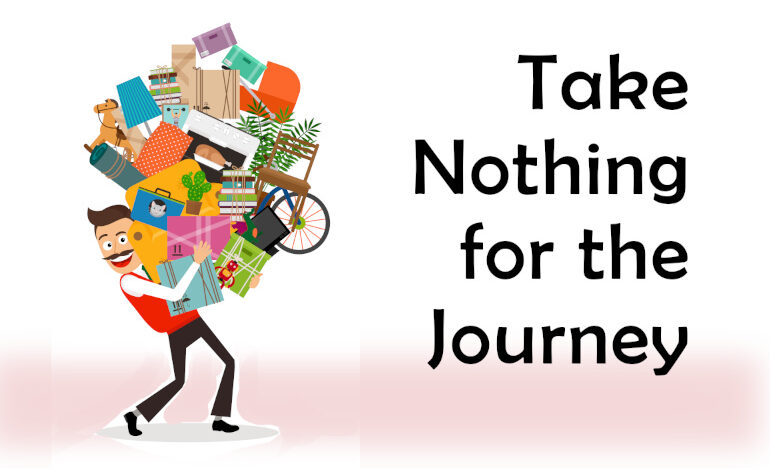Boy Was My Face Red: Handling Embarrassment

An Assembling God’s Puzzle video
By Fr. Garry Richmeier, C.PP.S.
One of the puzzle pieces of life that we experience much more often than we’d like is embarrassment. It’s unavoidable, and usually crops up when we least expect it. Since embarrassing situations usually catch us by surprise, we don’t have the time and space to prepare for them or figure out how to avoid or handle them. And if there is one thing we humans don’t like, it’s being in situations where we don’t have much control over what’s happening. Be that as it may, embarrassment is a piece of the puzzle we have to deal with.
There is no way to avoid embarrassment completely, and there is no way to feel good about embarrassing situations. But there are some ways to deal with embarrassment that can make it feel less bad.
When we feel embarrassed, there’s usually a thought in us somewhere that I’ve lost something. It’s like the Chinese idea of “saving face,” which is related to embarrassment. I don’t want to “lose face” by doing something embarrassing. If I stumble for no apparent reason, I may feel I’ve lost my image of being in control and self-composed. If I mess up a speech, I may feel I’ve lost credibility in the eyes of the audience. If I come out of a public bathroom with toilet paper stuck to my shoe, I think people will see me as a clueless clutz, and my image of being “normal” will be lost.
One way to make embarrassment less uncomfortable is to cultivate the idea that no mistake or embarrassing action can change anything about who we really are. We don’t “lose face” or anything else because of a slip-up or gaffe. Others will think what they want, but after an embarrassing episode, we will be exactly who we are, and nothing really will be lost.
Thinking this way takes some practice and work along the way, of course, and it requires us to put less stock in what others think about us. But it can help lessen feelings of embarrassment.
Embarrassment has a lot to do with our ideas of what other people think about us. When we do something embarrassing, we may wonder if anyone saw it, if it wasn’t too noticeable. Or if it was obvious, we often immediately think “They must think I’m stupid/clutzy/clueless/uncultured,” etc. That wondering about what others think about us can make feelings of embarrassment worse.
Some people will think negative thoughts about us when we do something embarrassing, but that is not in our control and it does not make their opinions about us accurate. But in my experience, most people, when they see another person in an embarrassing situation, will usually think “I’m glad that didn’t happen to me!” And many times others will feel bad for the person embarrassed, which is a form of empathy. If I am able to practice imagining people thinking that instead of being critical, it may lessen the amount of embarrassment I have to endure.
Another strategy that can make embarrassment worse is trying to cover up, hide, explain away, or ignore the embarrassing event. That only makes us wonder more about what others are thinking about us.
As an example, Johnny Carson once walked out on stage for one of his famous Tonight Show monologues. As the audience was applauding, he absentmindedly checked to see if his zipper was up on his pants. Instead of hoping no one saw it, and wondering if people would be talking about him the next day, he immediately turned to his sidekick Ed MacMahon and said “Did you see that? I just checked my zipper on national TV!”
The audience roared with laughter and he went on with his monologue with apparently little embarrassment. Humor about the mistake is a good way to diffuse embarrassment. So if I trip for no apparent reason walking on the sidewalk with a friend, instead of blaming it on a non-existent crack in the sidewalk, I can joke and say something like “That’s OK, It’s my first day with my new feet!”
One last thing that can help us deal with embarrassment is something that can help us deal with others in any situation. It is cultivating the truth that all of us humans are basically the same. We spend a lot of time and energy differentiating ourselves from each other, which is a big problem in our polarized world today. We need to continually remind ourselves that the same basic things give all of us joy, sadness, anxiety, pleasure, and even embarrassment. If that becomes more a part of my thinking, I probably will not feel so strange, different, alone, and weird when I do something embarrassing.
All of the videos in this series can be found here: Assembly God’s Puzzle.
Never miss an article published on the Renewal Center website: Sign up to receive our newsletters.
[Fr. Garry Richmeier, a Precious Blood priest and spiritual director, holds a Master’s of Divinity Degree from St John’s University in Collegeville, Minnesota, and a Master’s of Counseling Psychology degree from the University of Missouri-Kansas City. He is a licensed professional counselor and a licensed marriage and family therapist.]
Boy Was My Face Red: Handling Embarrassment — An Assembling God’s Puzzle video — Photo 156668764 | Embarrassment © motortion | Dreamstime.com
Related

Take Nothing for the Journey
An Assembling God’s Puzzle video
By Fr. Garry Richmeier, C.PP.S.
Jesus’ teaching about what to take on a journey — nothing — is actually good advice for building trusting relationships. Don’t bring your “stuff” into the relationship; listen deeply and respec their views and situation, understand their struggles.

Pilgrims of Hope, Episode 6: Walking with Cancer Survivors
Hosted by Fr. Ron Will, C.PP.S.
We are talking with people who find hope amid difficult circumstances or bring hope to others. In this episode, Kathy Keary talks about how centering prayer, journaling and other spiritual practices helped her cope with two life threatening health issues.
Categories
Assembling God's Puzzle Coffee with Padre Cooking & Spirituality Encounters of the 4th Kind Family Matters Reflections on the Eucharsitic Prayers Spiritual Resources Taize Prayers The Contemplative Life Traveling with Pilgrims of Hope Uncategorized Videos Week of Prayer for Uhristian Unity When you need a little help
